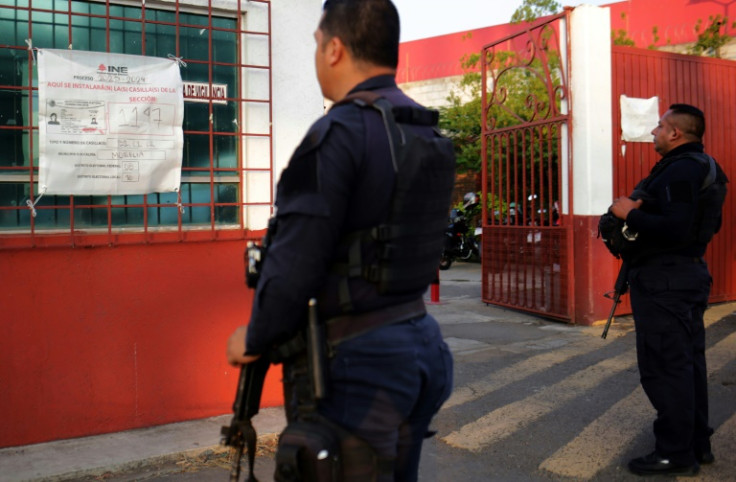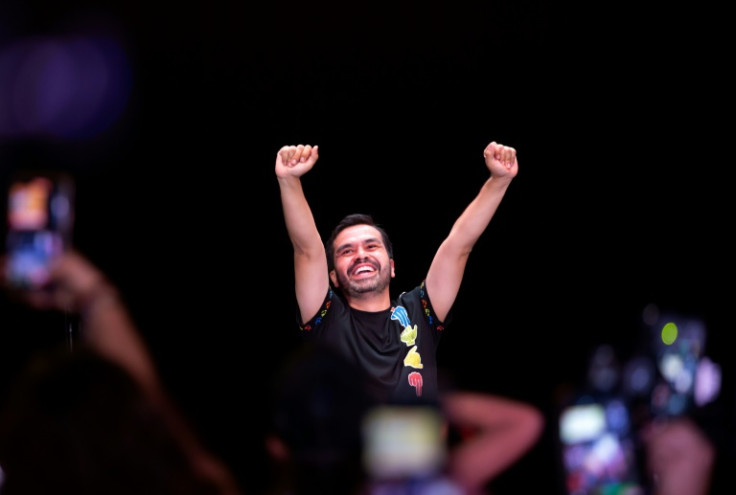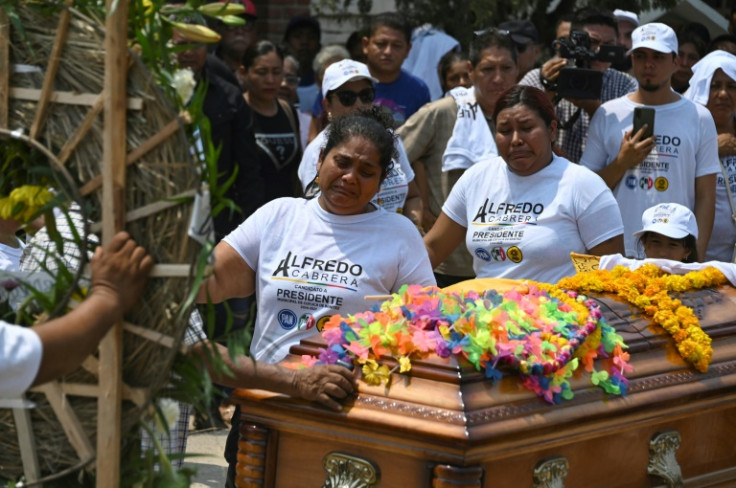
Mexican voters are expected to make history Sunday by electing their first woman president, a milestone in the crime-plagued country where gender-based violence and discrimination have long been rampant.
Ruling party candidate Claudia Sheinbaum, a former Mexico City mayor and a scientist by training, had a 17 percentage point lead over her main opposition rival Xochitl Galvez on the eve of the vote.
The only man running, centrist Jorge Alvarez Maynez, was trailing far behind as a particularly violent campaign season marked by a string of candidate murders drew to an end.
It means that, barring a huge surprise, a woman is almost certain to break the highest political glass ceiling in Mexico, where around 10 women or girls are murdered every day.
That prospect motivates other women to succeed and to think "yes you can," said Blanca Sosa, a 31-year-old store worker in Mexico City.
She expects Sheinbaum to continue the "good things" done by outgoing President Andres Manuel Lopez Obrador, such as pensions for the elderly and an increased minimum wage.
Ricardo Sanchez, however, said he planned to vote for Galvez because of her "business vision."
Lopez Obrador's "policy of putting the poor first is to ruin us all so that we're poor and then he gives to us," the 55-year-old businessman said in the northern city of Monterrey.
Sheinbaum, 61, owes much of her popularity to Lopez Obrador, a fellow leftist and mentor who has an approval rating of more than 60 percent but is only allowed to serve one term.
Nearly 100 million people are registered to vote in the world's most populous Spanish-speaking country, home to 129 million people and several time zones.
Voting will begin at 08:00 am (1300 GMT) in the southeastern state of Quintana Roo and some areas near the US border, followed later by other regions.
Thousands of troops will be deployed to protect voters from ultra-violent drug cartels that have gone to extreme lengths to ensure their preferred candidates win.
More than two dozen aspiring local politicians have been murdered during the election process, according to official figures, in a nation where politics, crime and corruption are closely entangled.
In a sign of the difficulties of staging elections in cartel hotspots, voting was suspended in two southern municipalities because of violence, local authorities said Saturday.
"The fight against organized crime will be the biggest challenge for the next president," said Guadalupe Correa-Cabrera, a professor at George Mason University, in the United States.
Security was the "weakest point" of Lopez Obrador's administration, she told AFP.
Sheinbaum has pledged to continue the outgoing president's controversial "hugs not bullets" strategy of tackling crime at its roots.
Galvez has vowed a tougher approach to cartel-related violence, declaring "hugs for criminals are over."
More than 450,000 people have been murdered and tens of thousands have gone missing since the government deployed the army to fight drug trafficking in 2006.
The next president will also have to manage delicate relations with the neighboring United States, in particular the vexed issues of cross-border drug smuggling and migration.
Addressing a cheering crowd of thousands at her closing campaign rally, Sheinbaum said Mexico was going to "make history" this weekend.
"I say to the young women, to all the women of Mexico -- colleagues, friends, sisters, daughters, mothers and grandmothers -- you are not alone," she said.
The ruling party candidate had the backing of 53 percent of voters as campaigning drew to a close, according to a poll average compiled by research firm Oraculus.
Galvez, an outspoken senator and businesswoman with Indigenous roots, was second with 36 percent. Maynez, 38, had just 11 percent.
Galvez, 61, often evokes her childhood story of growing up in a poor, rural town in central Mexico where she says she sold candy to help her family.
"While you danced ballet at the age of 10, I had to work," she told Sheinbaum, a former student activist who was born in the capital to a family of Jewish immigrants.
While millions of Mexicans have escaped poverty in recent years, more than a third still live below the poverty line in Latin America's second-biggest economy.
As well as voting for a new president, Mexicans will choose members of Congress, several state governors and myriad local officials.
In total, more than 20,000 positions are being contested.











